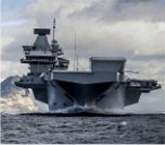Book Title:
Pirates of Barbary Corsairs, Conquest and Captivity in the 17th Century MediterraneanAuthor:Adrian TinniswoodISBN:978-1-59448-774-3Category:HistoryFormat:HardbackSummary:This book is an interesting intersection of commerce, religion, politics and courage in the 17th century. During a period of colliding empires bent on religious conquest throughout the Mediterranean the stage was being set for some of the same issues we grapple with today. Plenty of research went into the writing of this book but as you read you discover some of the facts are from single person accounts with no other evidence to support the assertions. That aside I enjoyed the book and recommend this for those interested in history, piracy and sailing throughout the Mediterranean during this period.






 Reply With Quote
Reply With Quote







Bookmarks